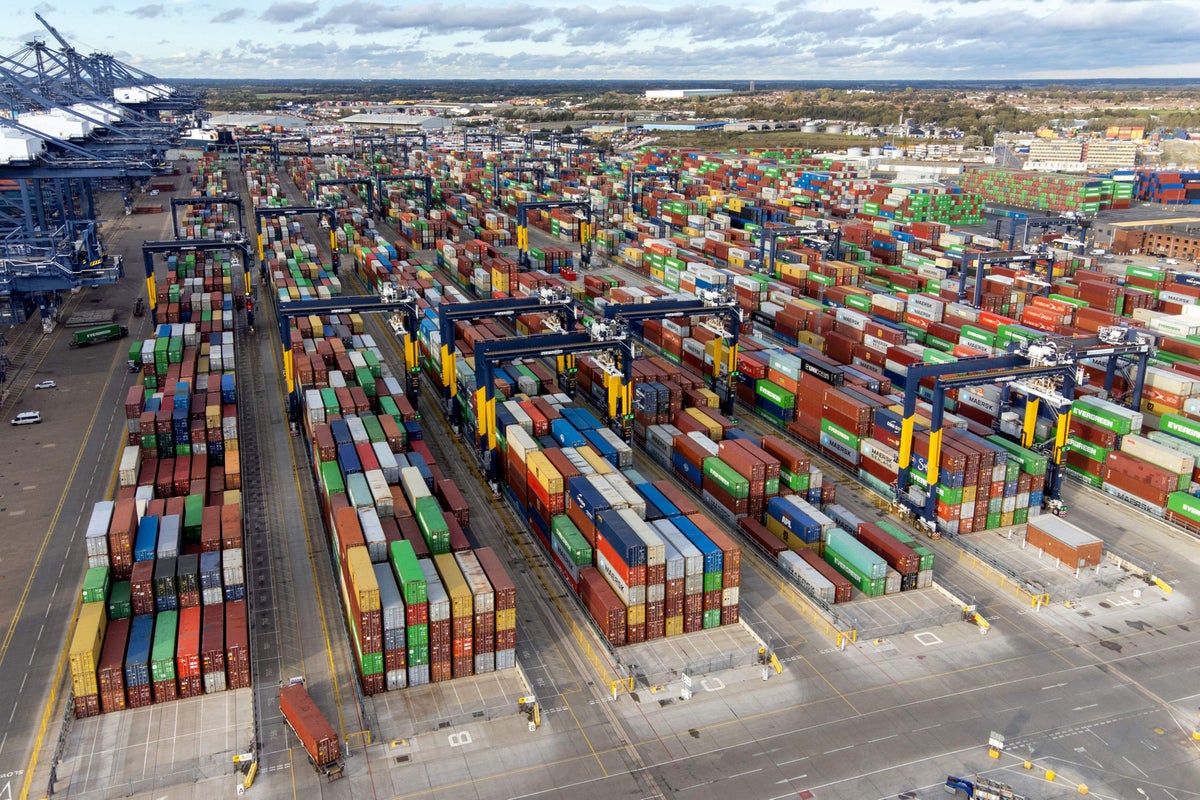Trade strategy will protect UK firms from ‘harm’ amid global shift – ministers


The Government has unveiled a new trade plan aimed at boosting exports and protecting UK firms at a time of growing uncertainty for global businesses following Donald Trump’s tariffs.
The Department for Business and Trade (DBT) said it was the UK’s first Trade Strategy to be published since Brexit.
It follows the publication of an industrial strategy earlier this week which set out plans to back UK industries which the Government thinks have the potential to grow.
The trade plan aims to make the UK the best-connected country in the world to do business, helping to loosen regulation and expand opportunities for exporters.
As part of the plan, the DBT pledged to introduce new tools and safeguards to help protect UK firms against the threat of a shifting global trade environment.
This is understood to mean expanding its ability to respond to unfair trade practices, guarding sectors such as steel, and potential powers to respond to deliberate economic pressures against the UK.
The decision to strengthen trade defences comes at a time of heightened uncertainty following Mr Trump’s tariff announcements in April, which have hiked charges on most US imports and raised concerns over the future of global trade arrangements.
The strategy nonetheless follows a trio of major deals struck between the UK and India, the US and the EU in recent months.
The agreement with the US is set to implement quotas that will effectively eliminate the tariff on British steel and reduce the rate on UK vehicles to 10%.
Meanwhile, the deal with India opened up trade between the two countries by lowering tariffs on exports like gin and whisky.
Prime Minister Sir Keir Starmer said the trade strategy was a “promise to British business: helping firms to sell more, grow faster, and compete globally”.
Jonathan Reynolds, the Government’s Business and Trade Secretary, said: “The UK is an open trading nation but we must reconcile this with a new geopolitical reality and work in our own national interest.
“Our Trade Strategy will sharpen our trade defence so we can ensure British businesses are protected from harm, while also relentlessly pursuing every opportunity to sell to more markets under better terms than before.”
Trade minister Douglas Alexander said the Government was taking “every step necessary to safeguard British businesses from the increasingly protectionist mood in much of the world by sharpening our defensive toolkit”.
Meanwhile, the newly created Ricardo Fund aims to set aside funding to tackle complex regulatory issues and remove obstacles for UK businesses selling abroad – which the DBT said could unlock £5 billion worth of opportunities.
It is also expanding the capacity of UK Export Finance – the country’s export credit agency – by £20 billion to total £80 billion.
The body provides Government-backed loans, guarantees and insurance to help companies trade overseas.
Separate to the trade strategy, the DBT said it was calling for views across the steel industry about how future trade measures and protections should be shaped.
Steel producers and businesses across the supply chain will be invited to submit feedback over a six-week “call for evidence” period.
Current safeguarding measures – which include tariff-free quotas on steel imports to limit sudden surges – expire in June next year.
Mr Reynolds said the Government would “not sit by idly while cheap imports threaten to undercut UK industry”.








